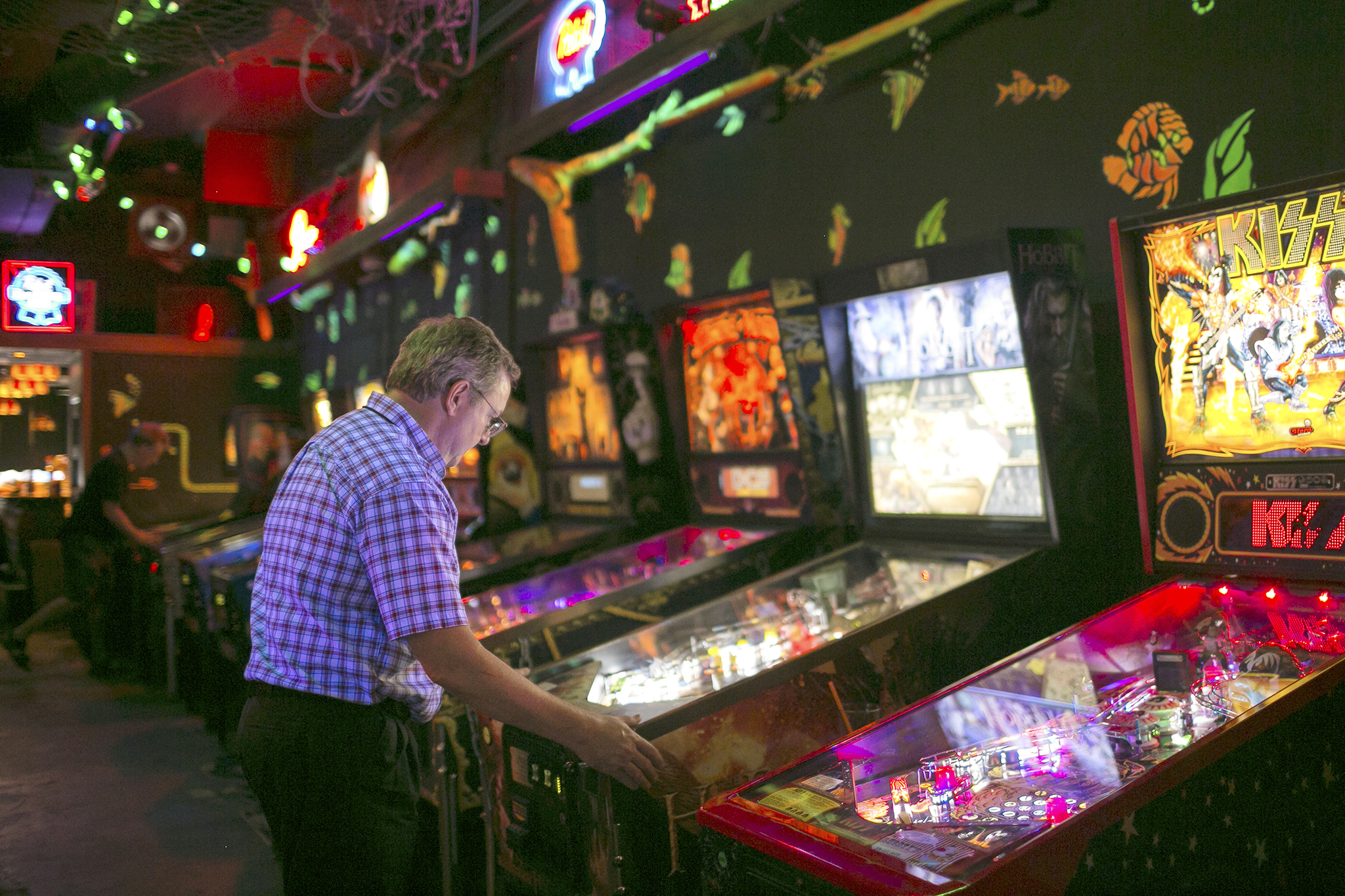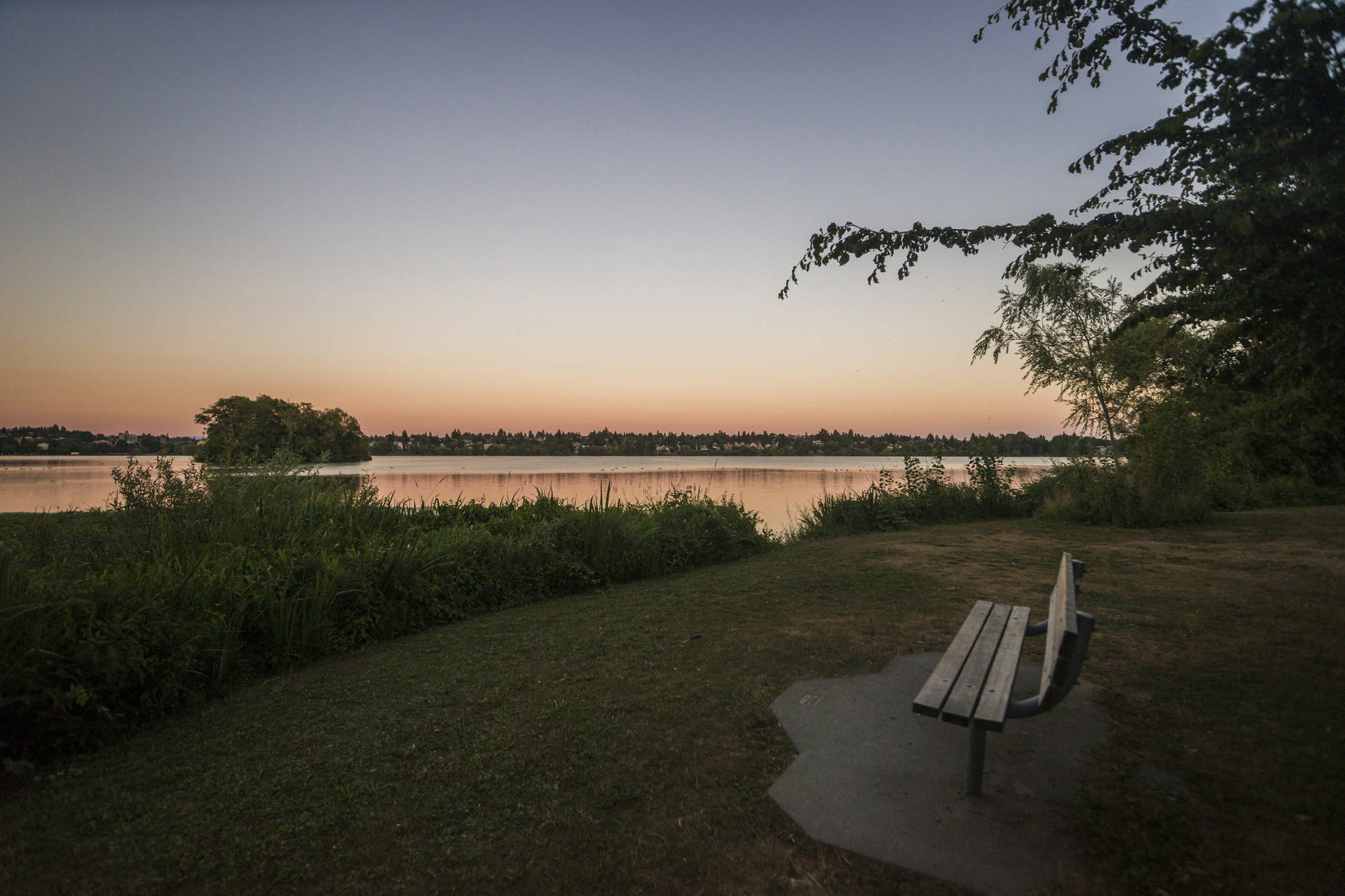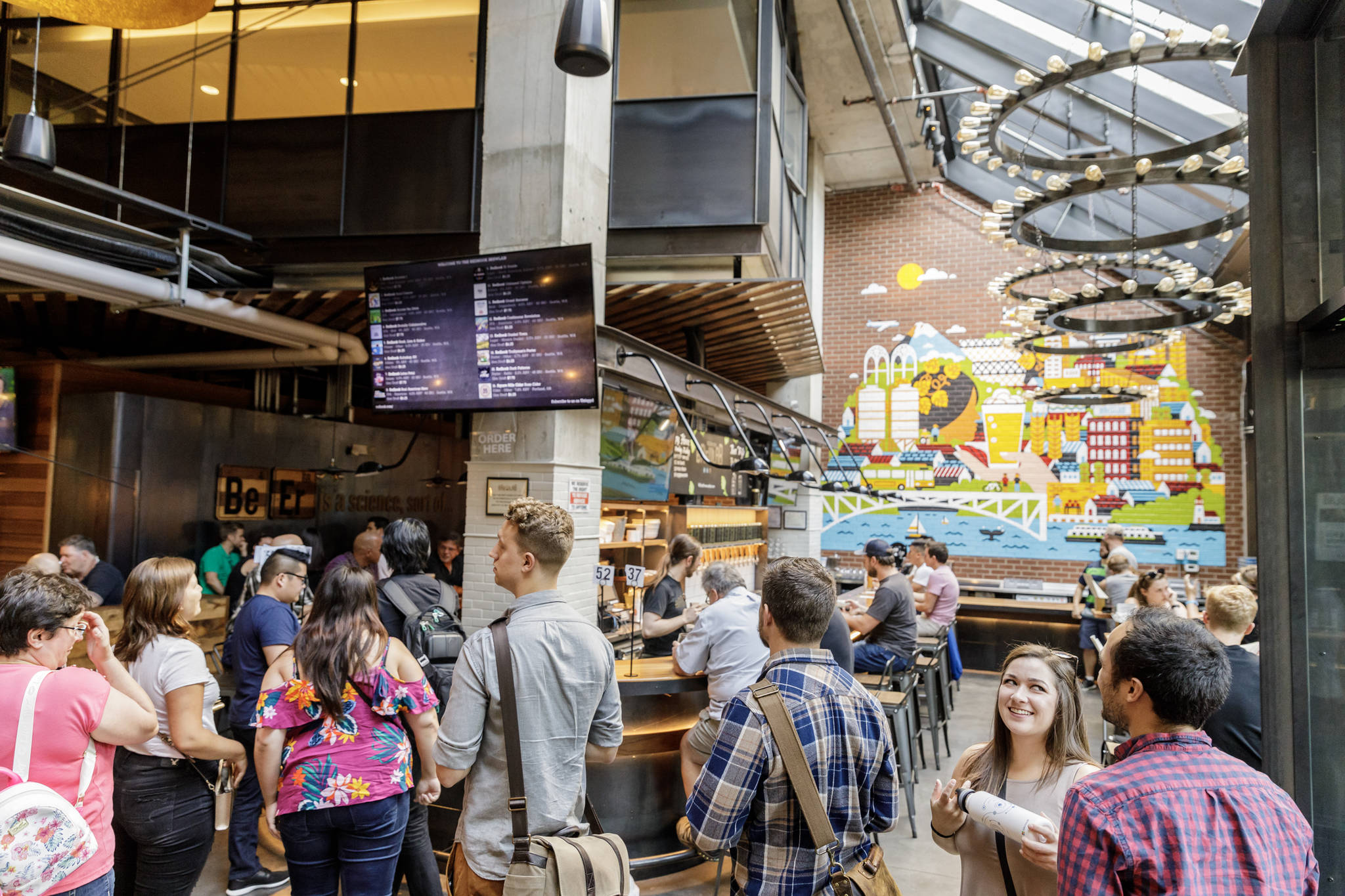“I’m not sure I know what Shorty’s is, exactly,” Avout Vander Werf says, existentially, as he sits in the pre-lunch calm of his Belltown pinball bar. “Is it the stripes on the wall? Is it the games? The hot dogs?
“Or is it that neighborhood fabric that we saw?”
It’s definitely something. That became clear last fall when news broke that a developer planned to raze the building that houses Shorty’s (2222 Second Ave., 441-5449), along with several others on the block, to erect a 124-unit apartment building with retail on the ground floor.
On the face of it, the deal appeared already done. The building owners were willing to sell; the developers were eager to take advantage of zoning regulations that would allow them to build a seven-story complex where a squat and shabby three now stand. That the strip is a mere 10-minute walk to the Amazon campus virtually guaranteed that the residential units would be rented before the building even opened. New Seattle Kills Old Seattle, Part 1,503.
But as it turned out, Old Seattle still had a bit of fight left. An unexpected reprieve from the backhoe came courtesy of the Landmark Preservation Board, which ruled in October that the building next door to the one Shorty’s occupies—the Warren Apartments, which was also part of the redevelopment plan—had historic significance. Brown and uncomely, with a peeling exterior and old roof, the building turned out to be one of the few in Belltown to survive the great Denny Regrade. Yet it was clear from the testimony at the board meeting that few people really cared about saving the Warren Apartments; they wanted to save Shorty’s.
“We somehow became the face of preservation,” Vander Werf says. “I have selfish reasons to preserve this; I put my heart and soul into this place. But people knew that with this plan, it would be a completely different neighborhood. People came out in droves because they realized that. It’s not just Shorty’s. It’s the whole neighborhood that is going to disappear.”
Vander Werf says “is going to disappear,” not “was going to disappear,” because the Landmark Preservation Board’s decision was hardly the end of story. It’s true that following the board’s decision, one investor decided to pull out of the deal, putting the redevelopment plan on ice. But no one really knows what the Warren Apartments’ historic-landmark status exactly means yet. “A historic landmark could mean they just put a plaque up, or restore it to a T, or anything in between,” Vander Werf says. “It’s hard to say what’s going to happen.”
In Seattle’s current debate between development and preservation, those on the latter side are often portrayed as stodgy, white-haired North Seattleites who stand in the way of progress for sometimes petty reasons. Shorty’s presents perhaps a more sympathetic face—at least to an urbanist’s taste—to the argument that we have a right to love and protect the environments in which we build our lives.
For those who haven’t been, the bar is about as dark as a Coney Island-themed drinking hole festooned with punky clowns can be. The kitchen serves three things: hot dogs, nachos, and “organic” TV dinners. Its Rainier is priced as Rainier should be. The pinball machines are kept in pristine shape by Vander Werf himself, a trained technician. TV dinners aside, the bar’s only TV is so fuzzy you can’t read the score when the game is on, and there’s no guarantee that the game will be on. Monday nights, the bar only shows pro wrestling. No exceptions. If the Seahawks are playing a make-or-break game on Monday Night Football and you go to Shorty’s, you’re watching pro wrestling.
What is Shorty’s? It’s a bar that refuses to be anything but what it is.
Vander Werf says he’s not against development, but argues that this city can’t simply go to the highest bidder and remain a place we love. “Is money the only thing that counts? There should be a way to say no, this is important to us, that it’s just not money. We want a little bit of color in our life.”
I press him on whether this would mean some places got special treatment due to emotional ties. “Are we more important than other bars?” he asks. “I don’t know. But a lot of people came out for us.”
dperson@seattleweekly.com
Read about the rest of the Best of Seattle Reader Poll winners here. If you didn’t get a chance to vote this go-round, make sure your voice is heard next year. Email us at bestofseattle@seattleweekly.com and we will let you know when nominations open for BoS 2017.








